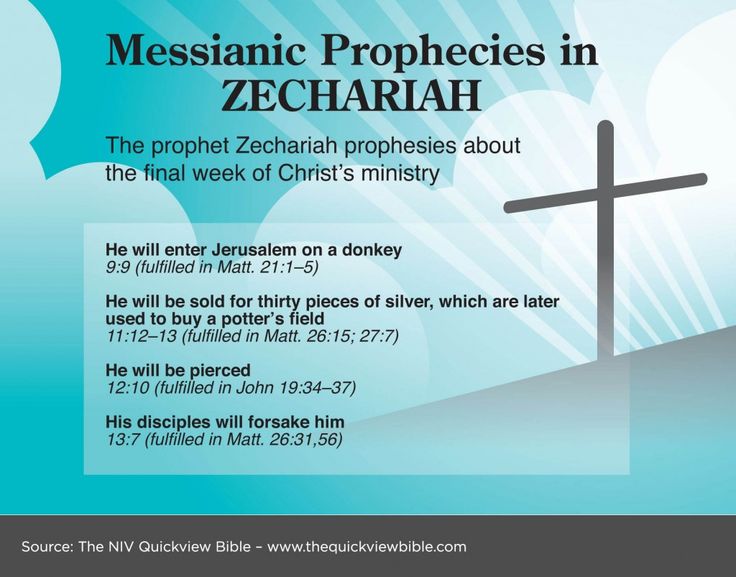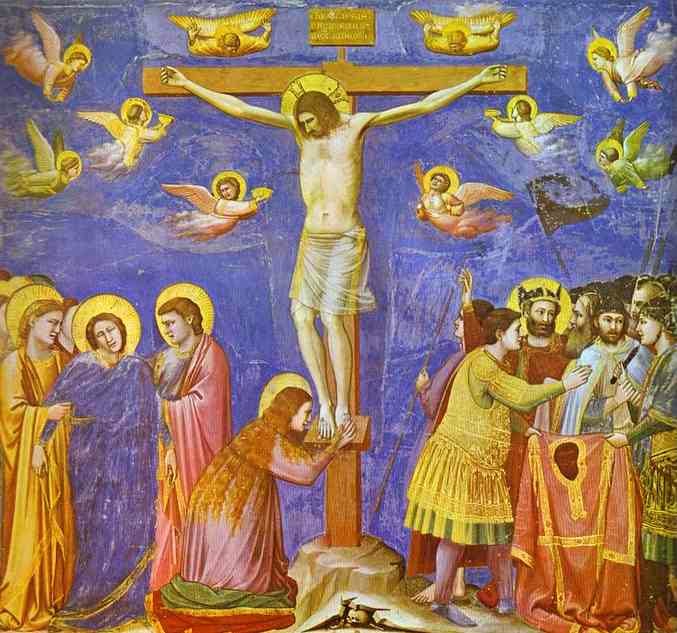The most important person in human history, the promised Messiah, the crucified King, the resurrected Savior, and Creator of the Universe.
Short Answer:
Jesus of Nazareth, also called the Christ, is the most important person in human history. In the Old & New Testament Scriptures, we see Jesus’s prophetic lineage, his life, his death, his resurrection, and divinity. It is through Jesus’ alone that we can be saved and reconciled to God.
Long Answer:
Jesus of Nazareth is the most important person in history. No other person has affected civilization more than the man, Jesus (also called the Christ). Though his cultural influence in the Western World has waned in recent decades, the historical effects of his life cannot be ignored.
In What If Jesus Had Never Been Born, D. James Kennedy noted some of the more impressive feats achieved through Jesus’ teaching and followers…
- Hospitals and universities were started by Christians for Christian purposes.
- The elevation of the common person compared to everyday Roman society.
- High regard for human life compared to first century culture.
- Modern science founded by Christians.
- The elevation of women.
The most comprehensive record of Jesus, both before and after his incarnation, is found in the Gospels in the New Testament. In the Scriptures we see Jesus’ prophetic lineage, his life, his death, his resurrection, and divinity. Let’s review each aspect.
Jesus Is The Promised Messiah
First off, Jesus is the promised Messiah. Jesus was not born into a humble Palestinian setting in a vacuum. Instead, Jesus life and ministry were prophetically significant.
For centuries, the Jewish nation looked for a Messiah because of the Tanakh (תַּנַ”ךְ) or the Old Testament in the Christian Bible. In Jewish theology, the Messiah was someone who would save and liberate the Jewish people. In Hebrew, this savior-figure is referred to a ‘messiah’ (מָשִׁיחַ) or “christos” (χριστός) in Greek, from which we get the term ‘Christ’. So whenever you see the title of ‘Christ’ attached to Jesus, you are referring to the Messiahship of the first century Jewish rabbi or teacher, Jesus of Nazareth.
“But all this has taken place that the Scriptures of the prophets might be fulfilled.” (Matthew 26:56)
Biblical scholars have numbered over 350+ Old Testament prophecies fulfilled in the life, death, and resurrection of Jesus. Here are a few of the more well-known prophecies with Old Testament (OT) reference and the New Testament (NT) fulfillment:
- The Messiah would be the seed of the woman (Genesis 3:15, OT)
“God sent forth his Son, born of woman.” (Galatians 4:4, NT) - The Messiah would be a prophet like Moses (Deuteronomy 18:15-19, OT)
“A prophet mighty in deed and word before God and all the people.” (Luke 24:19, NT) - The Messiah would be called God’s Son (Psalm 2:1-12, OT)
“And a voice came from heaven, “You are my beloved Son; with you I am well pleased.” (Mark 1:11, NT) - The Messiah would be a suffering servant (Isaiah 52:13 – 53:12, OT)
“For this is my blood of the covenant, which is poured out for many for the forgiveness of sins.” (Matthew 26:28, NT) - The Messiah would be resurrected (Psalm 16:8-11, OT)
“That he was buried, that he was raised on the third day” (1 Corinthians 15:4, NT)

Image credit: Pinterest
Jesus Is An Historical Person
Moreover, Jesus was a real historical person. However, since the 19th century some scholars have doubted the authenticity of biblical references about Jesus. Since most of what we know about Jesus is found in the New Testament, many have wondered about his historicity.
“And she gave birth to her firstborn son and wrapped him in swaddling cloths and laid him in a manger, because there was no place for them in the inn.” (Luke 2:7)
There are ample reasons to believe in the New Testament documents. However, for argument’s sake, let’s say you don’t want to believe eyewitness, same-century ancient documents about an historical figure. If you were only left with non-Biblical sources, what might you discover about this first century teacher?
Here are a few extra-biblical sources with quotations…
- A ‘Christus…suffered the extreme penalty during the reign of Tiberius at the hands of one of our procurators, Pontius Pilatus. – from Tacitus (116 AD)
- “The Jews (murdered) their wise king.” – from Mara Bar-Serapion (70 AD)
- “The Christians…sang…a hymn to Christ, as to a god.” – From Pliny the Younger (61-113 AD)
- “The Christians…worship a man…(who) was crucified.” – Lucian of Samosata (115-200 AD)
There are many other non-Biblical sources, including a considerable number of “hostile witnesses” who had a theological or cultural reasons to discredit Jesus or his followers. But there’s no good reason to even doubt the authenticity of the New Testament documents in the first place. Those who do so are often not familiar with the scholarship backing the reliability of the original documents. See JP Moreland’s The Historicity of the New Testament.

Image credit: Time.com
Jesus Is The Crucified King
But Jesus was not just an historical religious teacher in an ancient Roman province. Jesus’ ministry was more than his teachings. Jesus was a king, in the line of one of the ancient Jewish kings, David of Bethlehem (Luke 18:38). His claims to the throne and to divinity put him at odds with the religious leaders of his day.
In the week of Passover, in the year 33 AD, Jesus was crucified, the Roman method of execution for non-citizen criminals. Though in Jesus’ case, he died an innocent man. So in the providence of God, Jesus served as a sacrifice for the sins of his people (1 Peter 3:18). In that way, he opened up a way for men and women to be reconciled to God.
“And he went out, bearing his own cross, to the place called The Place of a Skull, which in Aramaic is called Golgotha.” (John 19:17)
Some have questioned whether Jesus really died. After all, it’s very easy to fake a resurrection if you never die in the first place. But in Jesus’ case, he was killed by professional executioners: Roman soldiers. These soldiers faced the death penalty for allowing a crucified victim to survive so it’s hard to imagine how they might botch this part of their job.
J. Warner Wallace, a former cold case homicide detective gives five reasons for believing that Jesus actually died. The first is the most convincing from an historical perspective.
“Many first-century and early second-century unfriendly Roman sources (i.e., Thallus, Tacitus, Mara Bar-Serapion, and Phlegon) and Jewish sources (i.e., Josephus and the Babylonian Talmud) affirmed and acknowledged that Jesus was crucified and died.”
By all accounts – in both Biblical and non-Biblical sources, Jesus really died. Ancient extra-biblical sources may discount the resurrection, but they don’t disagree on whether Jesus really died.

The Crucifixion, ca. 1300, Giotto
Image credit: art-now-and-then.blogspot.com
Jesus Is The Risen Savior
But Jesus didn’t stay dead. On the third day after he was executed on the cross, Jesus rose from the dead. This miraculous event attests to Jesus’ authority over death. Jesus was resurrected.
This often begs the question on how it’s possible for anyone to rise from the dead. After all, it’s a universal experience that when someone dies, they stay that way. Dead. Every once in awhile you may read a news story of someone waking up in the morgue or in a coffin at a funeral and it’s a very unusual experience. But as we reviewed above, Jesus really died. So the question remains how anyone could actually rise from the dead.
“And as they were frightened and bowed their faces to the ground, the men said to them, “Why do you seek the living among the dead? He is not here, but has risen. Remember how he told you, while he was still in Galilee.” (Luke 24:5-6)
The better question related to Jesus’ resurrection is “are miracles possible?”
Miracles In Every Worldview – Including Atheism
Miracles are, by definition, events that supposedly happen outside the realm of our normal experience. A resurrection is not a normal event and can safely be categorized as a miracle.
Here’s the surprise: every major philosophical and religious worldview assumes the validity of miracles, i.e. events outside the realm of normal human experience. National Geographic’s Story of God, typically a non-Christian publication, documents miracles in all major religions. These miracles include…
- Islam: Mohammed splitting the moon as a miracle for the Meccans (Surah 54:1-2)
- Hinduism: mystics levitate, survive for years without eating, and others.
- Buddhism: the human mind can be trained to unleash abnormal powers.
- Judaism: Moses’ parted the Red Sea, Jonah swallowed by a fish, etc.
- Christianity: Jesus rose from the dead (1 Corinthians 15:4)
Even Atheistic Materialism believes something came from nothing in standard Big Bang cosmology. That is a miracle by any definition. (Checkout The Four Miracles of Atheism.)
So it doesn’t matter which worldview you investigate: every religion and philosophy holds to some type of ‘miracle’. Therefore, it’s not unusual to hold to a miracle about Jesus. Resurrection happens to be a miracle the Bible affirms and Christians believe. Jesus died and three days later he rose from the dead.

The Garden Tomb – Jerusalem, Israel
Image credit: Wikimedia
Jesus is Creator & God
Finally, Jesus was not merely a person. Both he and his followers taught his divine nature. When Jesus walked upon Middle Eastern soil in the first century, he claimed divinity for himself (John 8:58), forgave sins like God (Mark 2:1-12), and received praise as God (John 20:28).
“In the beginning was the Word, and the Word was with God, and the Word was God.” (John 1:1)
His followers taught the same thing. This early church historian Luke said Jesus purchased “the church of God, which he obtained with his own blood” – thus claiming Jesus was God (Acts 20:28). The Apostle Paul wrote Christ is “God over all” (Romans 9:5). Paul later said “by him all things were created.” (Colossians 1:16). Titus testified that he is our “great God and Savior Jesus Christ” (Titus 2:13).
In short, the New Testament witness is unanimous in teaching the Jesus is God.
Final Charge: Respond to Jesus
Finally, I encourage you to investigate the claims of Jesus of Nazareth. This unique, first century Jewish rabbi is the promised Messiah in the Hebrew Scriptures. He lived in the first century AD, died on a Roman cross, and demonstrated his deity by rising from the dead.
Anyone who turns from their sins and trusts in him will obtain eternal life and not fall into judgement (John 3:16). For more details on what Jesus means for your destiny, checkout How To Be Saved?
Resources
- Jews For Jesus’ on the Top 40 Most Helpful Messianic Prophecies.
- JP Moreland’s The Historicity of the New Testament.
- J. Warner Wallace’s on Is There Any Evidence For Jesus Outside The Bible?.
- J. Warner Wallace’s on Investigating Easter: Did Jesus Really Die On The Cross?
- Jesus’ divine nature, and role in the Trinity in Ron Rhodes’ on Is Jesus God?








